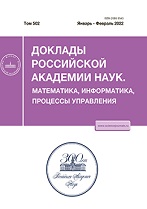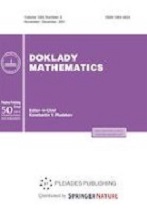|
This article is cited in 1 scientific paper (total in 1 paper)
MATHEMATICS
To Birman–Krein–Vishik theory
M. Malamudab
a Peoples’ Friendship University of Russia, Moscow, Russia
b St. Petersburg State University, St. Petersburg, Russia
Abstract:
Let $A\ge m_A>0$ be a closed positive definite symmetric operator in a Hilbert space $\mathcal H$, let $\hat{A}_F$ and $\hat{A}_K$ be its Friedrichs and Krein extensions, and let $\mathfrak S_\infty$ be the ideal of compact operators in $\mathcal H$. The following problem has been posed by M.S. Birman: Is the implication $A^{-1}\in\mathfrak S_\infty\Rightarrow (\hat{A}_F)^{-1}\in\mathfrak S_\infty(\mathcal H)$ holds true or not? It turns out that under condition $A^{-1}\in\mathfrak{S}_\infty$ the spectrum of Friedrichs extension $\hat{A}_F$ might be of arbitrary nature. This gives a complete negative solution to the Birman problem. Let $\hat{A}'_K$ be the reduced Krein extension. It is shown that certain spectral properties of the operators $(I_{\mathfrak{M}_0}+\hat{A}'_K)^{-1}$ and $P_1(I+A)^{-1}$ are close.
For instance, these operators belong to a symmetrically normed ideal $\mathfrak S$, say are compact, only simultaneously. Moreover, it turns out that under a certain additional condition the eigenvalues of these operators have the same asymptotic. Besides we complete certain investigations by Birman and Grubb regarding the equivalence of semiboubdedness property of selfadjoint extensions of $A$ and the corresponding boundary operators.
Keywords:
positive definite symmetric operator, Friedrichs and Krein extensions, compactness of resolvent, asymptotic of spectrum.
Citation:
M. Malamud, “To Birman–Krein–Vishik theory”, Dokl. RAN. Math. Inf. Proc. Upr., 509 (2023), 54–59; Dokl. Math., 107:1 (2023), 44–48
Linking options:
https://www.mathnet.ru/eng/danma361 https://www.mathnet.ru/eng/danma/v509/p54
|


|





 Contact us:
Contact us: Terms of Use
Terms of Use
 Registration to the website
Registration to the website Logotypes
Logotypes








 Citation in format
Citation in format 
